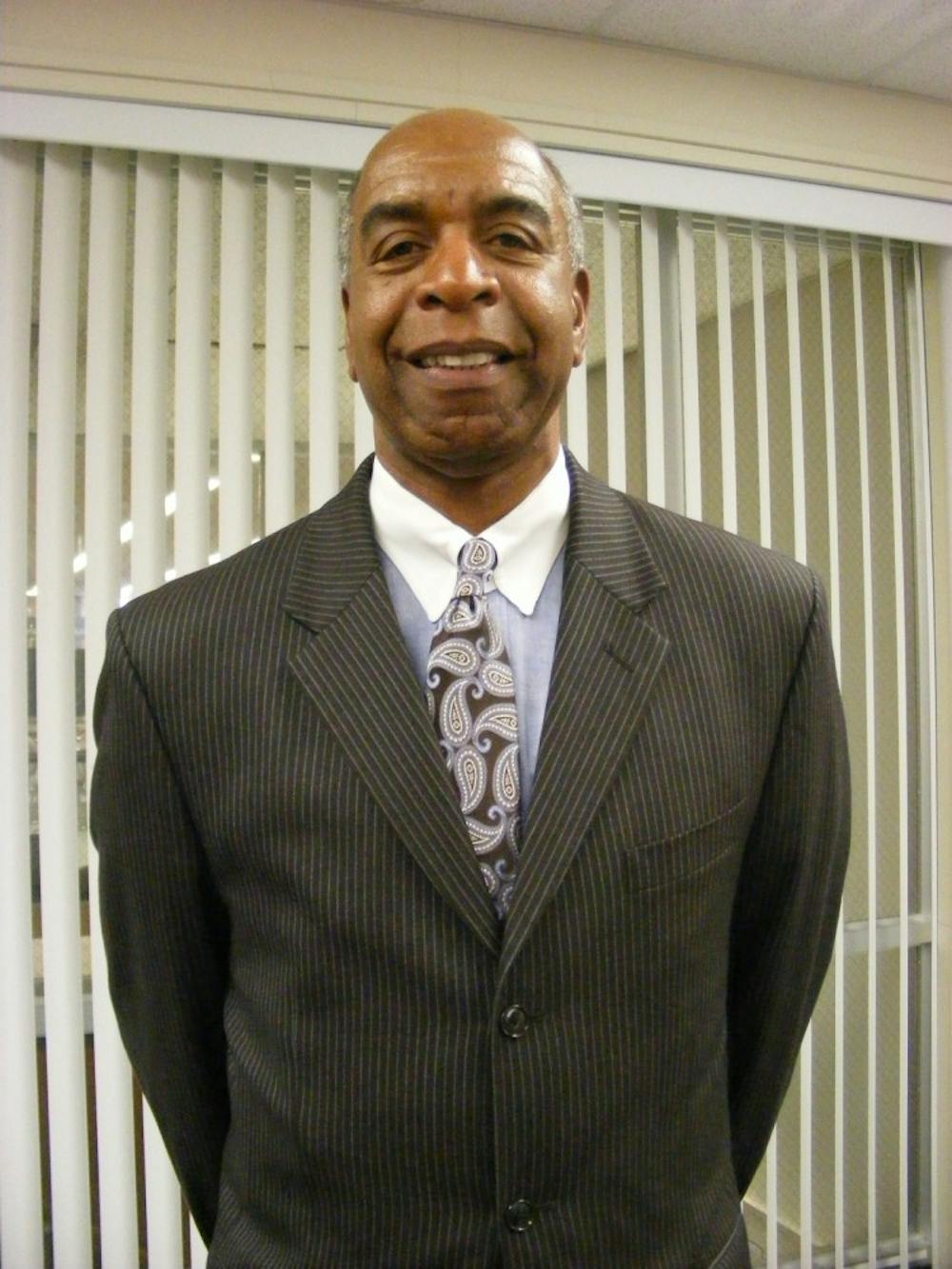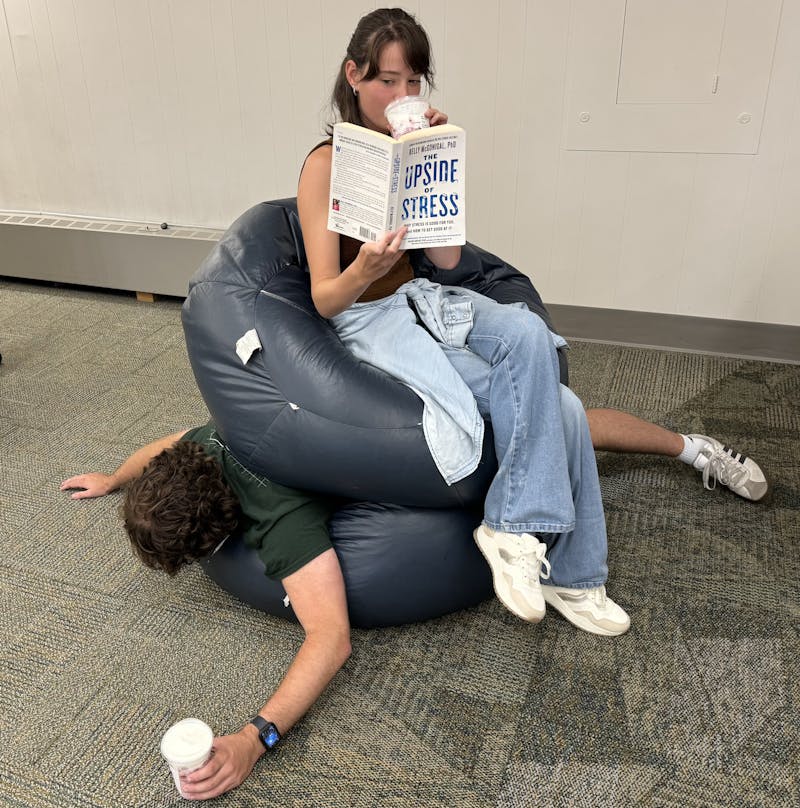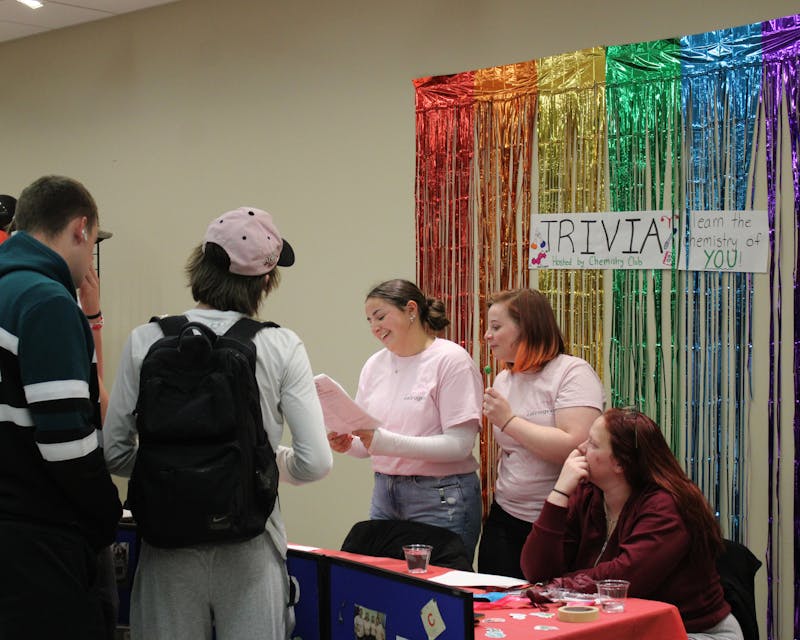It was standing room only in Room 205 at the Ezra Lehman Library on Feb. 15 as David Lovett spoke about race and community as part of the Black History Month Speaker Series.
Lovett is the associate vice president of Student Affairs and the dean of Students for Shippensburg University, as well as an SU alumnus.
In his speech, Lovett said he grew up in Gettysburg, Pa, and was one of 10 children in a poor family. He said the community cared about his family and him and that in his multicultural neighborhood, there was a safety net of people. Many older men he played basketball with served as role models and there was a deep sense of mentorship among the youth and older population.
“We have lost this community today,” Lovett said. “I learned from my father that there is more to life than taking. You have to give back.”
Lovett said to get youth engaged in today’s communities, the older population needs to become more engaged with them.
“It is not up to them to do it on their own. We need to do something for them and give them a role model,” he said.
Lovett also said his parents were important role models in his life and told him when he was young he could play all the sports he wanted to play, but he needed a good education. He added that his sisters were great students and all his siblings were enrolled in scouting to build character.
In 1963, Lovett was 10 years old and had the opportunity to get Marian Anderson’s autograph at the Gettysburg Memorial Day parade. Anderson was a famous contralto at the time, and a favorite singer of Lovett’s mother. Lovett said he was getting the autograph for his mother and Anderson wrote a note to his mother, rolled down the window of her limo, and told Lovett to make a difference.
That same year Lovett said his sister was to participate in the rededication of the Peace Light Memorial in Gettysburg.
George Wallace, the governor of Alabama, who disallowed black students to enroll in schools, was expected to appear as well as many other governors, and Lovett’s sister was to hand him a wreath in dedication to the memorial.
Lovett said the community and his household were in an uproar over this because everyone was concerned how Wallace would respond to having a wreath given to him by a little black girl. In the end, Lovett said Wallace did not show up, but sent his secretary instead.
“At 10 years old, I asked myself where do I fit in?”
Lovett spoke of a place called Jack’s Pool in Gettysburg that was a segregated swimming pool. After many families were turned away because of their skin color, a local mail carrier organized a multiracial group of people to tell Jack to open facilities to everyone or be shut down.
“The next day that pool was integrated,” Lovett said. Lovett said he remembers thinking that thousands of men died in Gettysburg during the Civil War just so black people can swim in a pool.
Lovett said he survives in this world by watching, listening and observing.
“You have to understand where people come from to build up social capital,” Lovett said.
He said he learns from failures, whether his own or from people in his life. “Be aggressive but be yourself. Be real.”




The Slate welcomes thoughtful discussion on all of our stories, but please keep comments civil and on-topic. Read our full guidelines here.